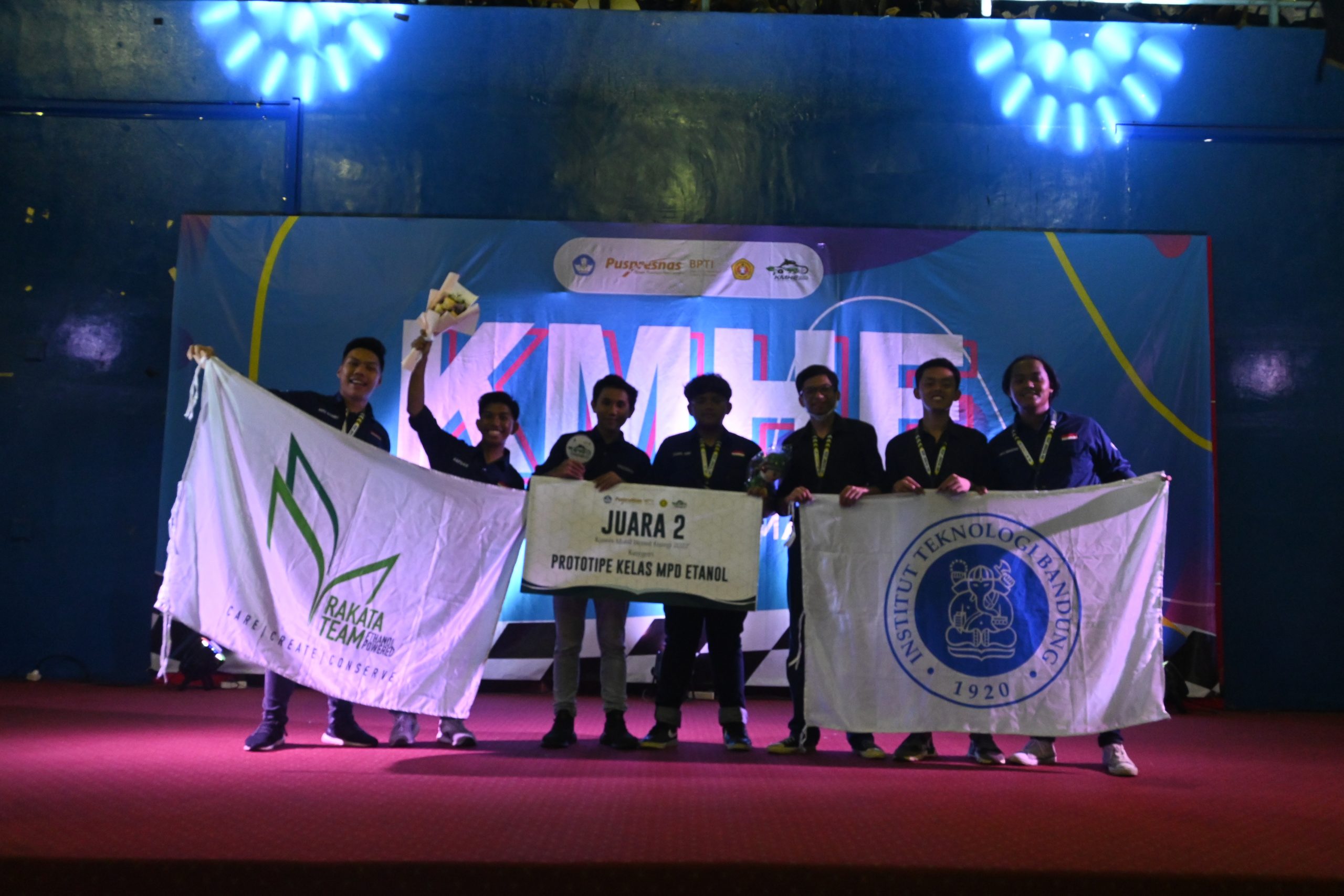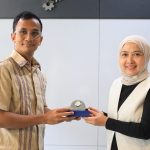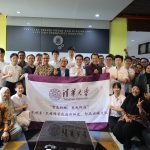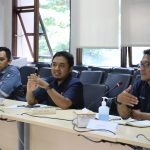Rakata Team Emerges as Runners-Up in the Ethanol Fuel Prototype Class at KMHE 2022
Bandung – Team Rakata is the ITB delegation team for the Energy-Efficient Vehicle Contest (KMHE 2022) and the Shell Eco-Marathon Asia. This year, Team Rakata achieved a sweet performance at the KMHE 2022 event held at the National Development University ‘Veteran’ East Java (UPN East Java) which closed on Thursday (03/11/22). Team Rakata placed second in the ethanol fuel prototype class category.
The KMHE 2022 competition is a national-level energy-efficient vehicle competition held annually by the National Achievement Center (Puspresnas) of the Ministry of Education, Culture, Research, and Technology (Kemdikbud Ristek) of the Republic of Indonesia. KMHE is aimed at students to encourage innovation by providing alternative solutions to the national energy problem. In addition, this competition challenges students to design, build, and test energy-efficient vehicles.
There are two categories being contested, the urban category and the prototype category. For each category, there are several classes, including internal combustion gasoline, diesel, ethanol, and electric motor engines. From the categories and classes being contested, the vehicle designed by Tim Rakata achieved a score of 570.12 Kilometers per liter (km/L).
Under the guidance of Dr. Eng. Hisar Monongam Pasaribu, Tim Rakata, consisting of several students from the Faculty of Mechanical Engineering and Aerospace and students from other schools and faculties, worked together to prepare their assembled vehicle since 2019. Preparations were made starting from research to find the right innovation so that the ethanol fuel used would be suitable for the engine to be designed and could reach the highest level of efficiency possible. It did not stop there, the design of each part of the vehicle was also done independently although involving third parties. Before going to compete, vehicle tests were also conducted to find out what things were still lacking.
In explaining the factors contributing to their victory, the Tim Rakata team recognizes the strengths of its individual members. Their dedication and strong desire to allocate time and effort towards developing an energy-efficient vehicle were crucial. Additionally, the support from their campus, such as access to testing facilities and ease of movement of equipment, played a role.
However, the team also faced several challenges along the way. Managing operational costs was one of the biggest challenges they faced. Despite being funded by sponsors and the ITB Student Affairs Directorate (Ditmawa ITB), they still had to manage their funds wisely, as the costs of manufacturing, operation, maintenance, and other expenses were substantial. In terms of technical issues, the limited guidance from professional experts made their research on engine design more difficult. They had to rely on their own knowledge, as vehicle design is typically carried out by professional teams. Good teamwork and a strong ambition are what Tim Rakata credits as the key factors in overcoming all the challenges they faced.







